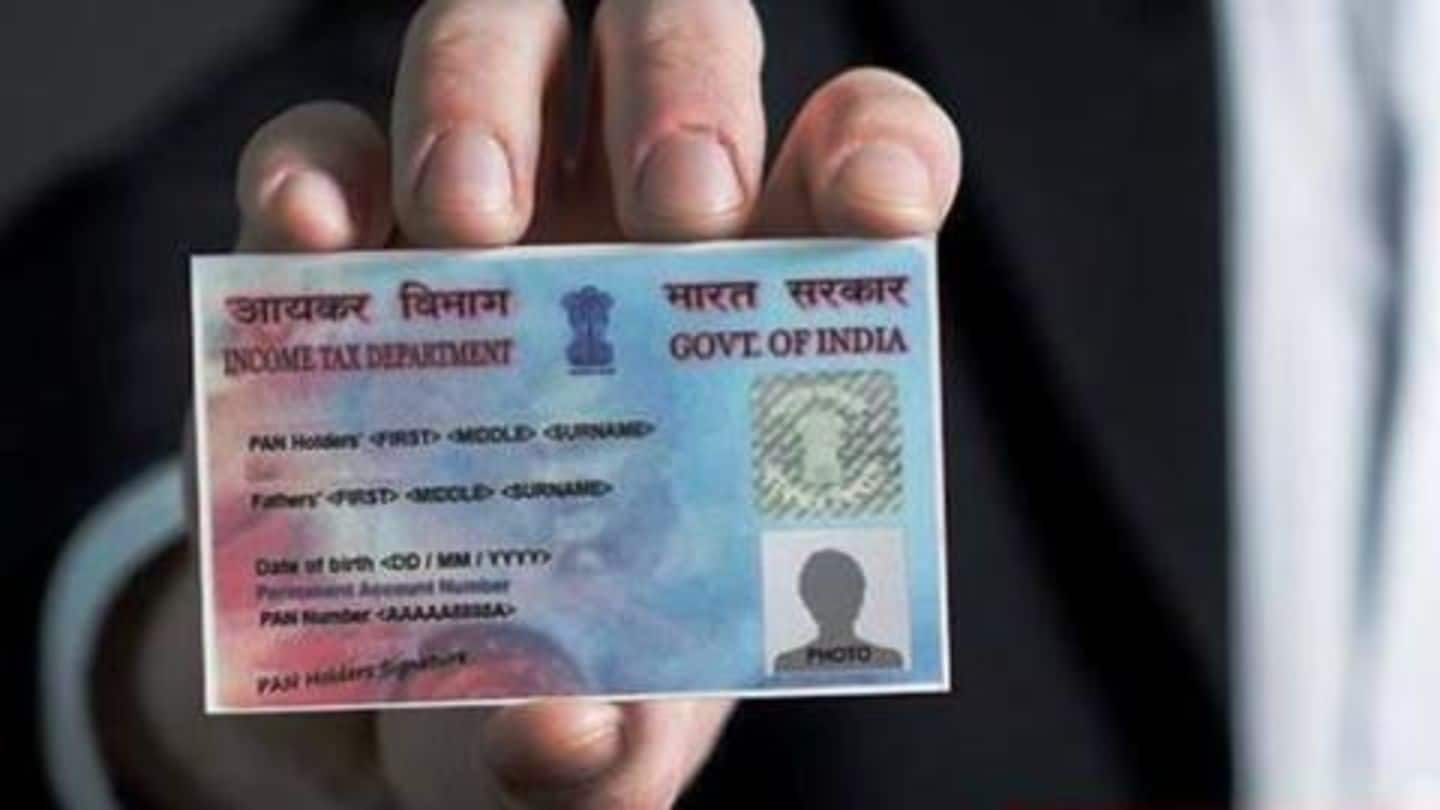
#PANCardRules: New PAN rules come into effect today; Details here
What's the story
The Income Tax Department has introduced some important amendments to the Permanent Account Number (PAN) card rules effective from 5 December 2018.
The changes have been brought about to check tax evasion and offer greater flexibility to new PAN applicants as well.
The Central Board of Direct Taxes (CBDT), on 19 November, notified the amendments to Income Tax Rules, 1962.
Here's what has changed.
#1
Furnishing father's name in application form not mandatory anymore
Until now, those applying for PAN were required to furnish their father's name in the application form which is also printed on the PAN card.
However, as per a new rule, applicants now have a choice to choose whether they want the name of their father or mother on the card.
If the applicant's mother is a single parent, furnishing father's name isn't mandatory.
#2
Entities doing business over Rs. 2.5 lakh must have PAN
According to another amendment, it is now mandatory for all entities, other than individuals, entering financial transactions worth Rs. 2.5 lakh and above in any given financial will have to get a PAN card on or before May 31 of the next financial year.
Such entities include Hindu Undivided Families (HUF), firms, charitable trusts, associations of persons, body of individuals, local authorities, and companies.
Details
PAN mandatory for those acting on behalf of business entities
As per the second amendment, any person acting on behalf of the aforementioned entities doing business worth Rs. 2.5 lakh or more must also get a PAN card on or before May 31 of the next financial year.
They may include managing directors, directors, partners, trustees, authors, founders, kartas, chief executive officers, principal officers, or office bearer of the person.
#3
Another new rule extends tax officials' authorization
Until today, tax authorities were allowed to specify formats and verification standards for submitted documents and Aadhaar information.
They were responsible for ensuring secure capture/transmission of data, implementing appropriate security, and archiving and retrieving policies related to furnishing of applications for PAN allotment/intimation of Aadhaar numbers.
However, a new rule has extended their authorization and responsibilities to the issue of Permanent Account Numbers too.